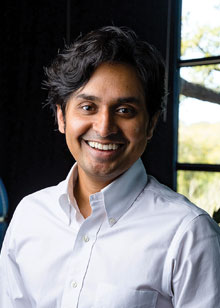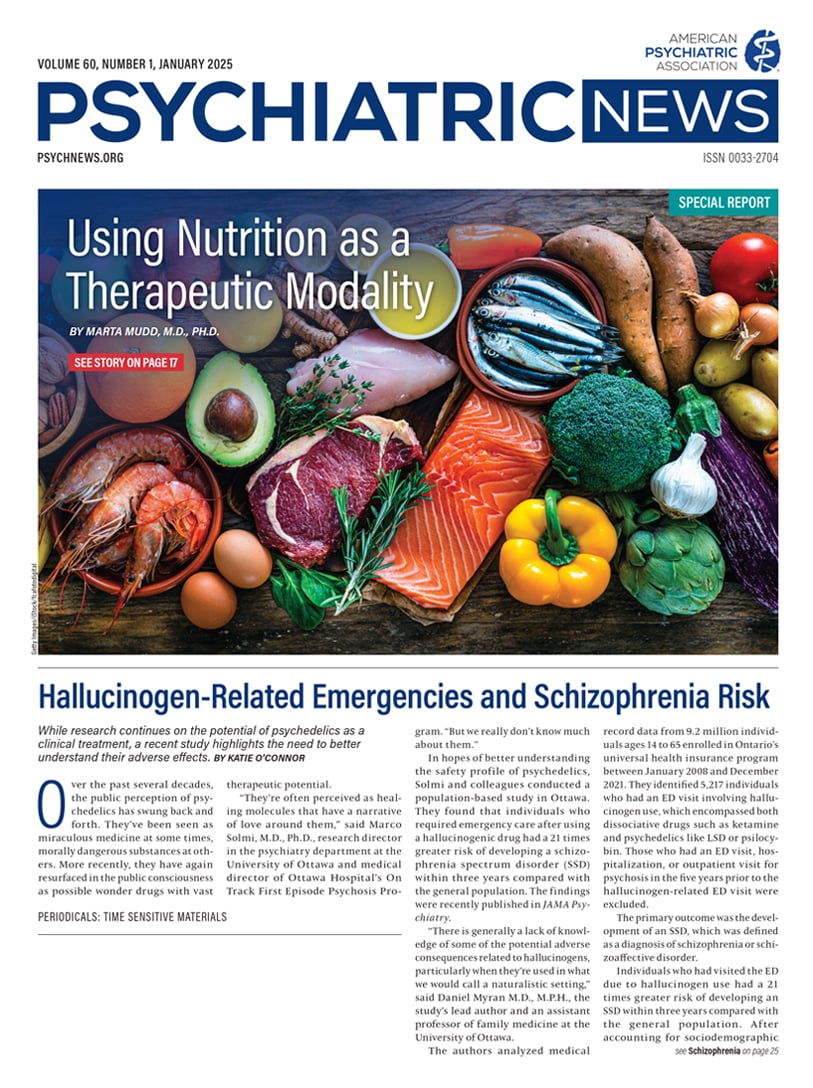In 2019, psychiatrist Alok Kanojia, M.D., founder of Healthy Gamer (HG), a mental health platform for the enormous community of video game players, began a series of intense online interviews with Byron Bernstein, a well-known gamer who went by the name Reckful Gladiator. Bernstein was renowned in the community not only for his prowess as a player but also for being remarkably public about a lifetime of mental health challenges, his struggles with relationships and break-ups, his brother’s death by suicide—all of which he shared on Twitch, a livestreaming platform for video games and other video content.
Kanojia made it explicitly clear that he was not Bernstein’s psychiatrist and that their conversations were not psychotherapy, and he urged Bernstein to seek proper clinical care. Nevertheless, the interviews—which can be found on YouTube—are startlingly raw, even intimate, while at the same time receiving millions of views. They became even more resonant in July 2020, when Bernstein died by suicide.
In the aftermath, Kanojia’s interactions with Bernstein became the subject of much debate and considerable criticism, which was detailed in an August 2024 article in The New York Times. (Among the critics who spoke to the Times was Charles C. Dike, M.D., a past chair of the APA Committee on Ethics, who writes the “Ethics Corner” column for Psychiatric News.) After a two-year investigation, the Massachusetts Board of Registration in Medicine issued Kanojia a reprimand, stating that he “had engaged in conduct that undermines the public confidence in the integrity of the medical profession.”
While Kanojia declined comment for the Times article, he agreed to answer questions via email from Psychiatric News about his experience as the founder of Healthy Gamer, his interactions with Bernstein and the criticisms they have attracted, and the broader questions they raise about psychiatry in a digital age.
PN: What can you tell us about your own history as a gamer and how that led you to create Healthy Gamer?
Kanojia: I struggled with video game addiction in high school and university, being placed on academic probation for the first two years of college for a GPA less than 2.0. This was back in 2002. I ended up overcoming my addiction and started focusing on technology and gaming addiction in residency around 2014.
Over this time, I noticed that people like me—young, often male, immersed in online culture—were being left behind. What I noticed in my clinical practice was that I was explaining basic concepts of how technology affects the brain to my patients over and over again. There seemed to be very little understanding of what impact video games can have on the brain. The warnings on video games have to do with violence ratings based on age, but studies have shown that video games generally do not contribute to violent behavior.
Parents and gamers have very little information on the addictive nature or negative health impacts of gaming. The mission of Healthy Gamer is to provide mental health resources to the digital generation through content (livestreams, YouTube videos), community (online spaces for connection), and coaching (a focus on life-skills development that young people who spend a lot of time online tend to not cultivate). Healthy Gamer is not a clinical entity and does not provide diagnosis or treatment of any medical conditions. In a sense, Healthy Gamer is what I wished all of my patients had access to: psychoeducation, community, and peer coaching.
PN: How did you enter into such an intense interaction with Byron Bernstein? When you began, what did you think or hope you were engaging in, and how did you envision it affecting him?
Kanojia: It is common on the Twitch platform to “collab” or have organic interactions with people. In the case of Mr. Bernstein, we were both streaming at the same time, and his chat told him there was a psychiatrist streaming on Twitch. He reached out, and we decided to hop into a call together.
My intention was simply to have a conversation. I realized this was Reckful Gladiator, and I told him I was a fan. He disclosed that he had been dealing with depression since the age of 14, and I immediately set some ground rules: that I was a psychiatrist but could not treat or manage his depression; that he did not need to answer or talk about anything he didn’t feel comfortable with. It’s important to note here that Byron at that point in time had been an online creator for at least seven years, and he was known for being very open with his own audience.
PN: You told him specifically that he was not a patient of yours, it wasn’t therapy, and that he should seek out a psychiatrist for formal treatment. Did you think he understand that?
Kanojia: Yes, this was very clear. We did not have a doctor-patient relationship, which was clarified both on-stream and offline. The medical board of Massachusetts performed a multiyear, in-depth investigation, and I would suggest the board did not consider our relationship to be clinical in nature and concluded that my activities at Healthy Gamer did not constitute the practice of clinical medicine. The board also found that I operated within standard referral guidelines for outpatient and higher levels of care with regard to Mr. Bernstein. [
Editor’s note: The board’s reprimand can be found
here.]
I cannot go into more detail, as Mr. Bernstein is still entitled to privacy regarding his mental health treatment.
PN: How do you respond to some of the criticisms lodged in the New York Times article, such as from one psychologist who said that your interviews with Mr. Bernstein were voyeuristic? Or Dr. Dike’s comment: “A doctor-patient relationship starts when you begin to provide medical advice using your training, your expertise, your knowledge to someone. Whether or not you call them your patient is irrelevant.”
Kanojia: I think Dr. Dike’s perspective is a very reasonable one, and at the same time, I think there are a lot of details that matter. The American Medical Association adds more to this, noting that the doctor-patient relationship is one of mutual consent. Mr. Bernstein and I were friends and professional collaborators, not doctor-patient. We both understood this.
Secondly, the practice of medicine is generally defined as having a doctor-patient relationship, engaging in diagnosis, treatment, and prognosis. I did not do these with Mr. Bernstein. I personally believe (and was taught as such in my ethical training) that what you “call them” is incredibly relevant. The doctor-patient relationship is a consensual relationship that is entered into by two parties (outside of certain exceptions like emergency care).
PN: In one of your interviews, Mr. Bernstein remarks that “everything in my life started working out as soon as we started talking.” And he credits you with steering him toward success in his work and social life. It’s clear from the interview that you strove to deflect his remarks and point him toward the ways he was changing on his own. But do you think he had begun to think of you as his therapist? Is it possible that the nature of the interaction had become, at least, ambiguous?
Kanojia: Our relationship was well defined, both publicly and privately. I believe the board’s reprimand is precisely for what you pointed out—that some people in the audience interpreted our interaction as being clinical in nature, and that this undermines the public’s faith in the profession.
However, there are two things that tend to be left out of this discussion. First, that Reckful was an incredibly public person. His audience had been watching him livestreaming for hours a day for years. His openness was part of who he was as a creator. He talked about his mental health often on his own channels.
Second, he died in July 2020, three months into a pandemic with devastating mental health consequences that we are still trying to understand the impact of. His comments of everything going well were from January 2020. This was not an ordinary time.
PN: Your interaction with Mr. Bernstein raises broader questions about what it means for a psychiatrist to participate in online venues. What does psychiatric practice look like in an online public venue? Where is the boundary between psychotherapy/formal treatment and online interactions in public forums—which may be helpful to viewers but may also veer into voyeuristic entertainment?
Kanojia: This is such an important issue. I think there are a few relevant considerations that I struggle with:
1) What constitutes the practice of psychotherapy or medicine? As I outlined above, and when I reviewed state bylaws, there is a formal entry into a relationship, diagnosis, treatment, and prognosis.
2) Can this be done in a public setting? The answer appears to be yes—there are TV shows that have real crews following around patients in hospitals, etc. (“Extreme A&E,” “Trauma: Life in the E.R.,” “Hopkins”).
3) However, this is not what we do at HG. What we do at HG is have conversations about mental health. This is distinctly different from psychotherapy—in which there is a diagnostic formulation, a treatment plan, tracking progress using standardized instruments, etc. I think the biggest issue that I struggle with is, who is responsible for fixing the mental health crisis?
We are seeing advances in most fields of medicine, but our field, psychiatry, is where we are seeing worsening outcomes. There has been an epidemic of male suicide for decades. The stigma against mental illness is worsening in so many ways. So many patients are reluctant to seek care.
Whose responsibility is this? Are we relying on public health departments? Governments? Where is a clinician’s responsibility? I think what we’re seeing is that there is a technology-based damage to people’s mental health. And the institutions we have in place to protect the public from psychiatric illness have worked historically, but now there’s a new need. Technology operates at scale and damages our mental health. Rates of ADHD, technology addiction, ASD, and even body dysmorphia are rising rapidly.
My work is based on the idea that I believe psychiatrists should be at the forefront of combating this mental health crisis, and that we need to evolve our profession to utilize the tools of the digital age. Now, this doesn’t necessarily mean practicing clinical medicine in public—there are several intermediate steps that we can take. One of our principles at Healthy Gamer is that mental health is more than the treatment of mental illness, so we emphasize building resilience and positive interventions for mental health like psychoeducation for the public, teaching people about their minds, and destigmatizing mental health issues by, well, bringing them to light. ■


